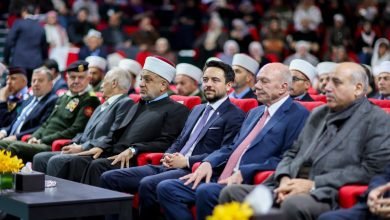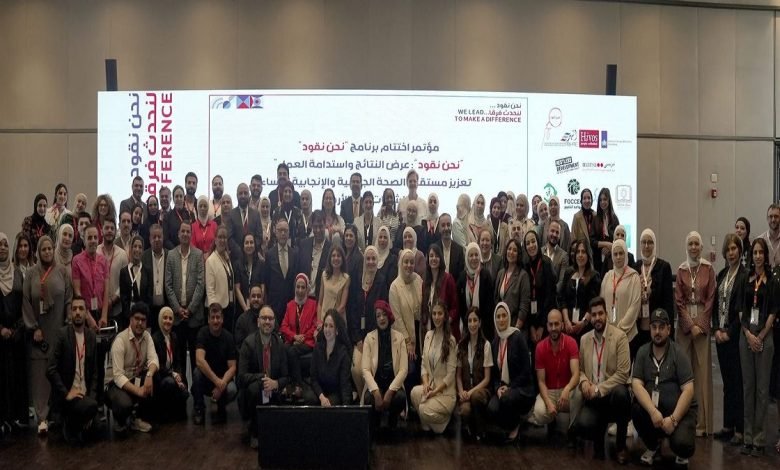
By : JD
Jordan Daily – The closing conference of the “We Lead” project kicked off in Amman on Tuesday under the theme “Moving Forward – From Achievement to Sustainability,” bringing together representatives from civil society organizations, government bodies, national councils, international partners, and youth activists working in sexual and reproductive health and rights (SRHR).
During the opening session, Fotouh Younes, The Executive Director of the Arab Network for Civic Education (ANHRE), stated that the conference aims to showcase the project’s key achievements throughout its implementation period (2021–2025) and to explore mechanisms for sustaining cross-sector cooperation to support health policies and services that meet the needs of women and girls in Jordan.
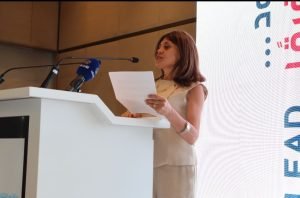
Sarah Saleh, The MENA Regional Director at Hivos emphasized “At Hivos, we believe that advancing gender equality demands bold and transformative strategies—strategies that center women and youth and foster local ownership and innovation.” “The We Lead program embodies this belief. In Jordan, we have seen rights holders take the actors lead in creating inclusive advocacy spaces, driving community-led initiatives, and building vital partnerships with civil society and government alike,” she added
Saleh further noted that the conference is not simply a conclusion—it is a call to carry forward this momentum. A call to continue investing in rights holders’ leadership.
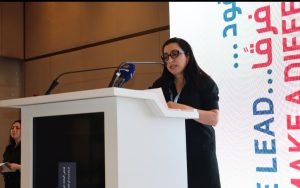
Dr. Muhannad Al Azzeh, Secretary General of the Higher Council for the Rights of Persons with Disabilities, emphasized the importance of sexual and reproductive health as one of the Council’s top priorities. However, expressing regret that this issue is often perceived by many as secondary or non-essential. He highlighted that, in reality, persons with disabilities are among the most vulnerable to the negative consequences resulting from the lack of inclusive and accessible sexual and reproductive health programs and services.
Al-Azza noted that the Council, in collaboration with partner organizations, is working to develop guiding manuals aimed at enhancing access for persons with disabilities to these services and programs, ensuring they can benefit from them independently and with dignity.
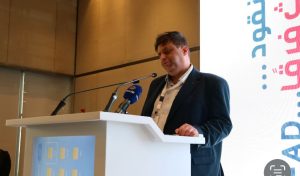
Mr. Harry Verweij, the Ambassador of the Kingdom of the Netherlands to Jordan, highlighted Jordan’s leadership role in the field of SRHR.
“Over the past four years, I’ve had the honor of watching “We Lead” grow from an ambitious idea into a movement that reached communities, changed conversations, and opened real space for young women to lead,” Verweij said.
He described the adoption of Jordan’s national SRHR strategy as a “milestone, placing Jordan among the champion countries in the region.”
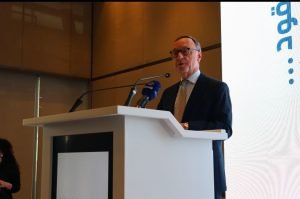
The two-day conference, running May 13–14, opened with an exhibition of achievements by 14 civil society organizations alongside side-panel discussions where partners shared project outcomes.
The second day of the conference will focus on strategies to sustain the project’s legacy and ensure sustainable cooperation among stakeholders. Discussions will include recommendations from civil society, experts, and official bodies to strengthen supportive SRHR policies and ensure effective partnerships continue despite local, regional, and global challenges.
The We Lead Project has been a transformative initiative dedicated to improving the sexual and reproductive health and rights (SRHR) of young women, particularly those from marginalized communities. Over the past five years (2021-2025), We Lead has empowered young women through Awareness Raising and leadership development, fostering sustainable change in SRHR landscapes in community support, provided services and communication with policy makers.
The program is implemented by a consortium led by Hivos, along with FCAM, FEMNET, Marsa, Positive Vibes, and Restless Development and funded by the Dutch Ministry of Foreign Affairs as part of SRHR Partnership Fund.
In Jordan, the project was hosted by the Arab Network for Civic Education (ANHRE). ANHRE works to promote human rights and civic education, contributing to the Sustainable Development Goals through community empowerment, advocacy, and lifelong learning at local, national, and regional levels, aiming for just and equitable societies.

